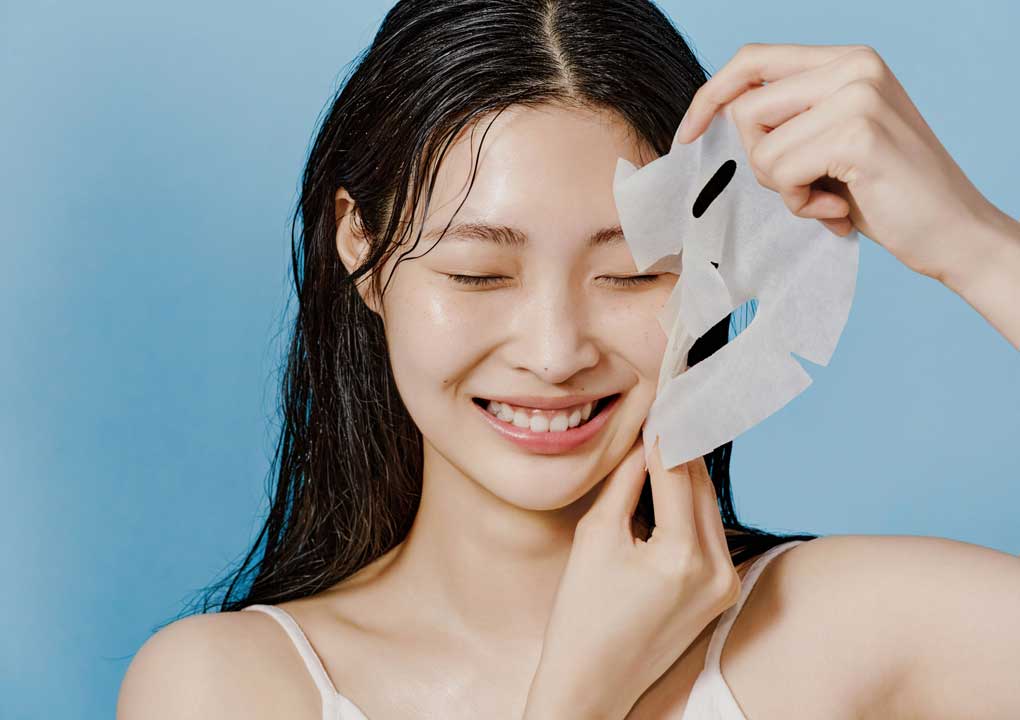In China, air pollution is a societal concern. Since 2000, air pollution is the cause of the anticipated death of 30 million people in Mainland China and Taiwan. The impact on health, respiration, and skin is tremendous. As Chinese people do pay special attention to their skincare, they are looking for anti-pollution products or anti-pollution ingredients in cosmetics for everyday use.
The global anti-pollution market is expected to reach $870.4 million in 2022 and up to $1.4 billion in 2031. Although the Chinese government is introducing many initiatives to reduce harmful external air, Chinese consumers decide to deal with the problem on their own, growing the demand for anti-pollution skincare products. If you are a beauty brand, you should definitely stay up-to-date with this key opportunity!
The Expansion of the Anti-Pollution Beauty Market
The global market will grow by 5.4% in the upcoming years and the Asia-Pacific region takes a big part of the market. China is the global leader in anti-pollution protective skincare products. Skincare accounts for more than half of the consumer demand in anti-pollution claims, as Chinese people worry about their skin health and believe that most of their skin problems come from pollution.
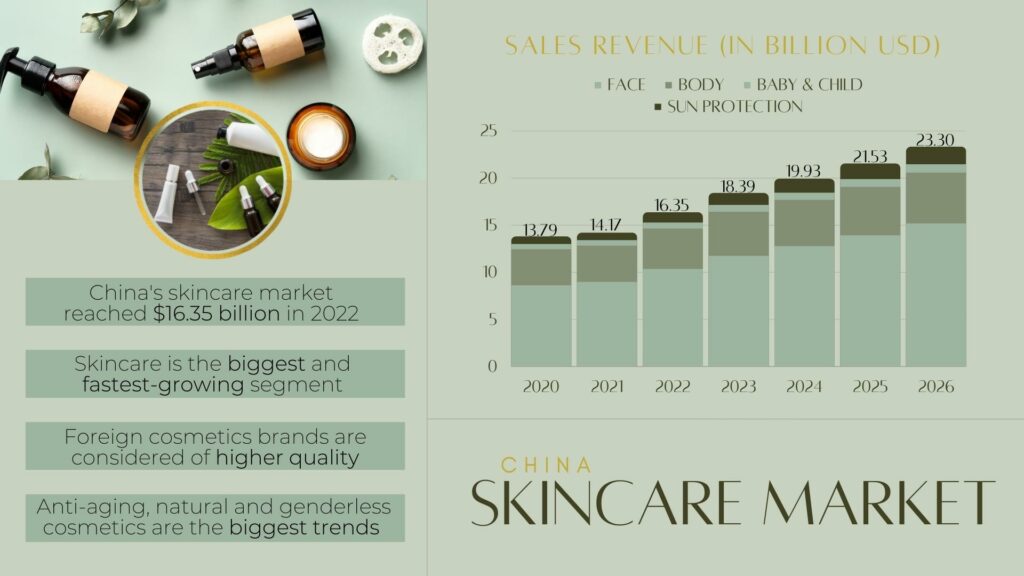
As you can see below, the Chinese skincare market is a very promising one and the biggest one, recording impressive growth over the years. Anti-pollution products are one of the most sought-after when it comes to cosmetics in China, which is an opportunity for foreign brands, also small and niche companies, as the market is not flooded yet.
According to Mintel, around 30% of women had bought skincare products with anti-pollution claims and approximately 40% would be interested in sampling these products. Those numbers will only grow, as men also join the trend, investing in personal care.
Covid-19 Accelerated the Rise of a Healthy Lifestyle in China
In China, the global pandemic has a meaningful interpretation. Many Chinese saw the Covid-19 pandemic as a sign from Mother Nature to stay in line. This massive change impacted the daily life of the Chinese as they decided to better look after their health and the environment. Especially Millennials and Gen Z are more open-minded and more environmentally conscious (mostly the young urban professionals from first and second-tier cities). They will think about the impact of their purchase on the planet and their own health.
Chinese customers have become aware of the disastrous effects of pollution on health and are looking for solutions. A healthy lifestyle meets more and more followers, as more and more people start joining gyms and fitness centers and taking care of their diet.
Unfortunately, a healthy lifestyle doesn’t prevent the skin and body from absorbing fine dust from the air. Chinese people are demanding protective skincare products and more anti-pollution products for personal care.
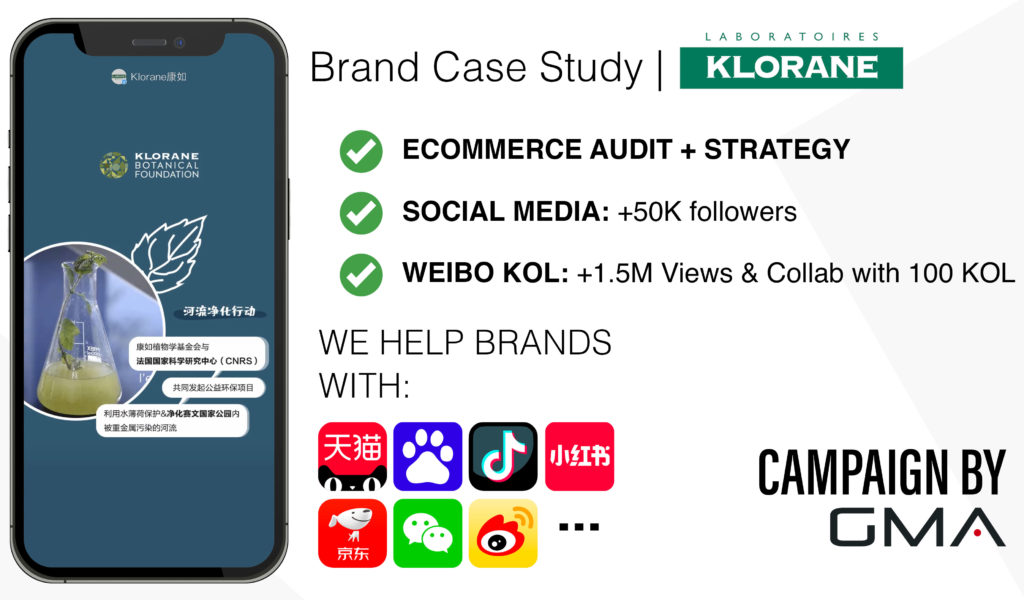
Chinese are Suspicious About Cosmetics Composition
Chinese consumers are very suspicious of the composition of cosmetics. For the majority of Chinese beauty lovers, the main criteria that motivate their purchase are both the benefits and the ingredients.
In a word, the brand is not a key argument for them to purchase. They will look for information and product reviews online to be sure a product has a clean composition and they will benefit from improved skin health. Why? Because sanitary scandals are unfortunately the weight of life in China. The Chinese are used to fighting against fake or counterfeit products. So, they have to be particularly meticulous when they purchase a new product.
Brands are investing in anti-pollution cosmetics
There are more and more anti-pollution beauty products launched worldwide, as the World Health Organization warns people that it’s crucial to protect their skin from harmful pollution, as almost 90% of people in the world suffer from bad air. Many international and Chinese brands are joining the trend, offering anti-pollution products, and meeting consumer demand for this type of skin care.
In 2016, of all the new beauty products launched worldwide that came with anti-pollution claims, 38% were launched in Asia-Pacific, up from 28% the year before. Many worldwide cosmetics brands like Sephora, Kiehl’s, Dior, Sunday Riley, etc. launched their anti-pollution cosmetics, such as; scrubs, anti-oxidant creams, moisturizers, detox masks, vitamins, and so on.
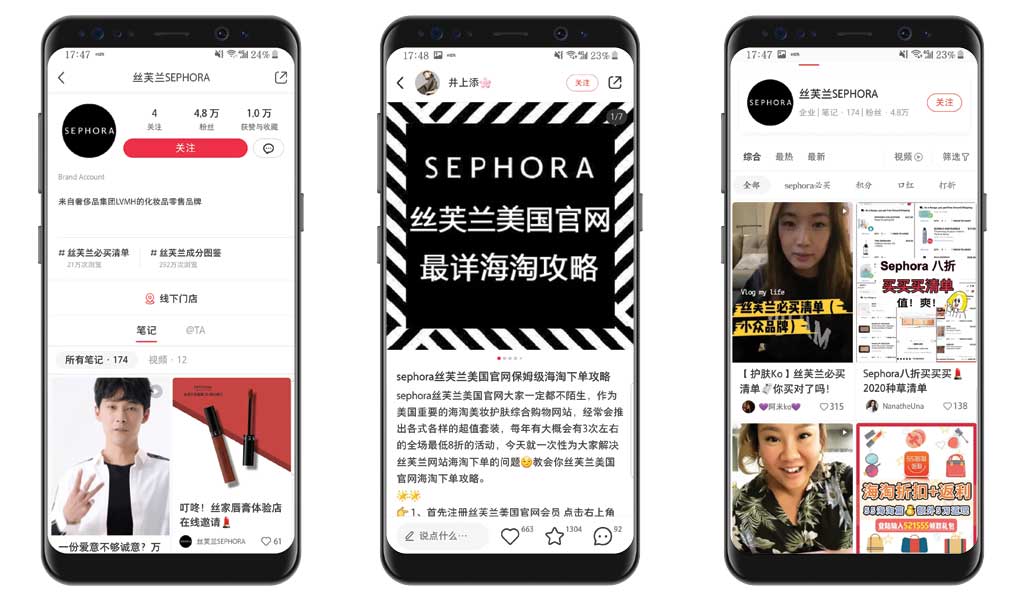
Lu Ming Tang Case Study: The Success of a Healthy Cosmetics Brand in China
Lu Ming Tang is a brand of natural cosmetics that differs from other brands established in China with its speech against pollution. It is indeed the only cosmetics brand to claim its commitment to major Chinese cities’ air pollution by caring for one’s skin with high-end products specifically developed. Between its marketing strategy and its innovative offer to target consumers, return on the success of this start-up.
A Brand Surfing on the Healthy Trend
Following heavy metal poisoning, the French founder Marie Amiand has devised a range of cosmetics to meet the needs of city dwellers’ sensitive skin, daily confronted with the pollution of Chinese most polluted cities. Lu Ming Tang is a brand that advocates the use of natural products to heal and protect skin from pollution.
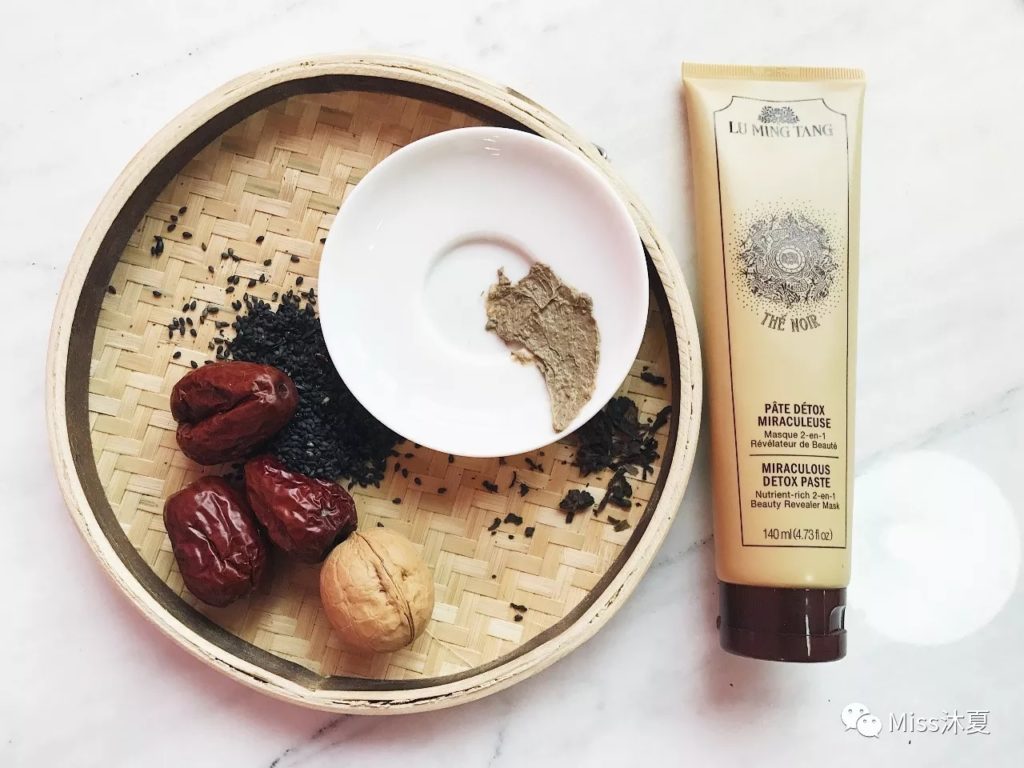
Its cosmetics are up to 90% natural ingredients. The main components include black sesame seeds, soy milk, oats, and rose. It is a total of more than fifty ingredients inspired by Superfoods and Traditional Chinese Medicine.
The renowned ingredient of the brand is tea. This ingredient is known for its detoxifying and antioxidant properties. It is associated with a scientific innovation called the bio-remedy complex which makes it possible to fight against the effects of pollution on the skin. The skincare products of Lu Ming Tang both fight against the pollution’s effects and revive the radiance of the skin’s epidermis.
High-end Investments Gain the Trust of Chinese Consumers
The brand has partnered exclusively with the distributor Sephora, which allows for gaining visibility in the Chinese market while gaining the confidence of consumers. Shangri-La Hotel Hangzhou also hosts one of its shops, a partnership of choice for any new brand aimed at a high-end receptive clientele.
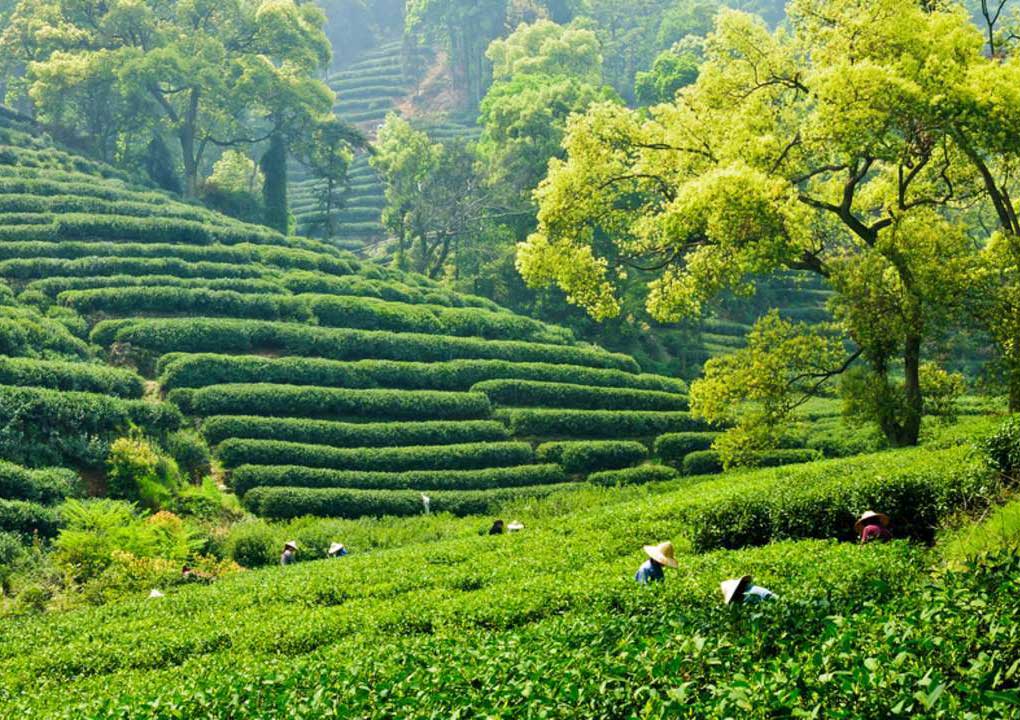
The anti-pollution cosmetics are formulated in Japanese laboratories recognized for their rigor in quality controls, before being manufactured in China. Using natural products such as tea while partnering with renowned laboratories for the severity of their quality tests allows Lu Ming Tang to seduce both skeptics and fans of natural solutions.
Smart positioning and branding
Positioning itself as a niche brand among high-end cosmetics allows Chinese consumers to no longer have to choose between a luxury or natural products: Lu Ming Tang is a perfect compromise.
The packaging retains a very French refinement while highlighting the simplicity of the ingredients. Another advantage: Lu Ming Tang cosmetics further strengthen the customer’s skincare routine rather than requiring them to completely replace their products, which are often reluctant to purchase.
A Chinese Brand for a Chinese Clientele
Lu Ming Tang is primarily for Chinese customers. Currently, 80% of its clientele is actually local. The main shop or flagship store of the brand is located in the French concession of Shanghai. It is a great location to seduce Chinese clientele and also to attract an expatriate clientele of real anti-pollution products.
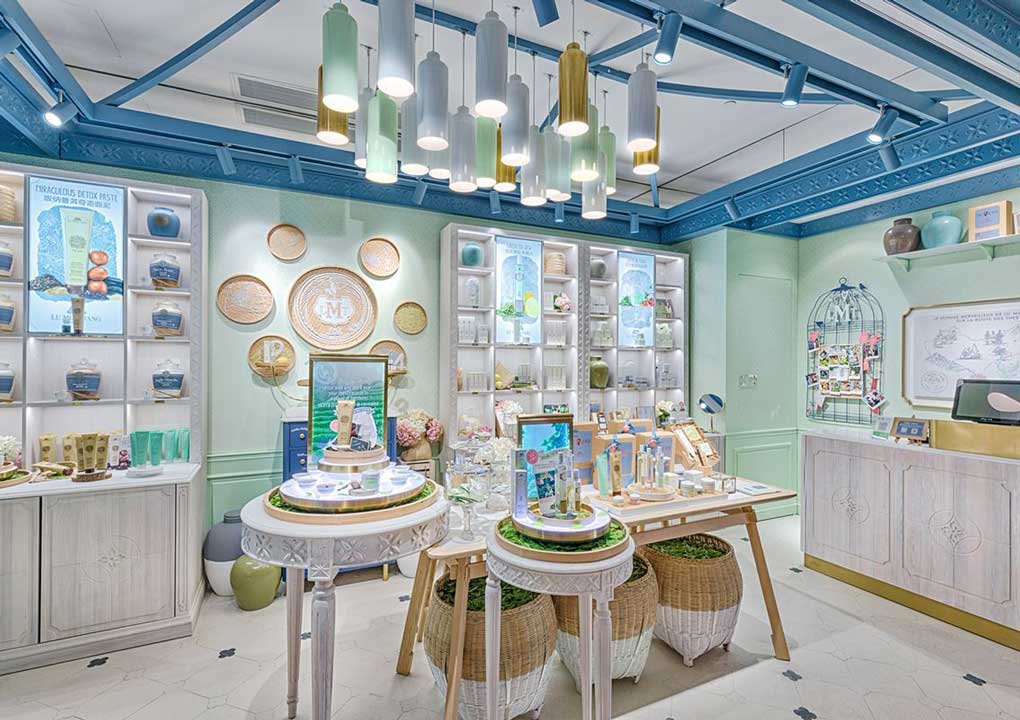
If its French Touch allows it to give credibility to its brand image in the luxury sector, this is not its only asset. Lu Ming Tang claims to be a fusion brand that celebrates the best of Chinese and Western culture. Its quality products come from China and the components (tea and bamboo first) are therefore grown in China.
This national high-end production still stands out from the so-called mediocre national production which taints the reputation of the country outside the border. The brand can therefore bet on the national pride of Chinese consumers.
How to Promote your Cosmetics Brand in China?
In order to get to your consumers in China, you need to go digital. China’s digital consumers are used to brands that are available online, in multiple different places and platforms, so that they can thoroughly check all the information needed before the purchase.
Be active on social networks
To reach Chinese customers, passage through Chinese social networks is unavoidable. There are many different Chinese social media platforms to choose from, but the most popular are;
Lu Ming Tang has an official WeChat account to which consumers can subscribe. It is a key social media to engage more easily with its current and potential customers.
Lu Ming Tang uses WeChat to share newsletters, have talks with its followers, and tell the dates of its next workshops. All the communication of the brand is based on a tight relationship with its clientele. Chinese people feel close to the brand.
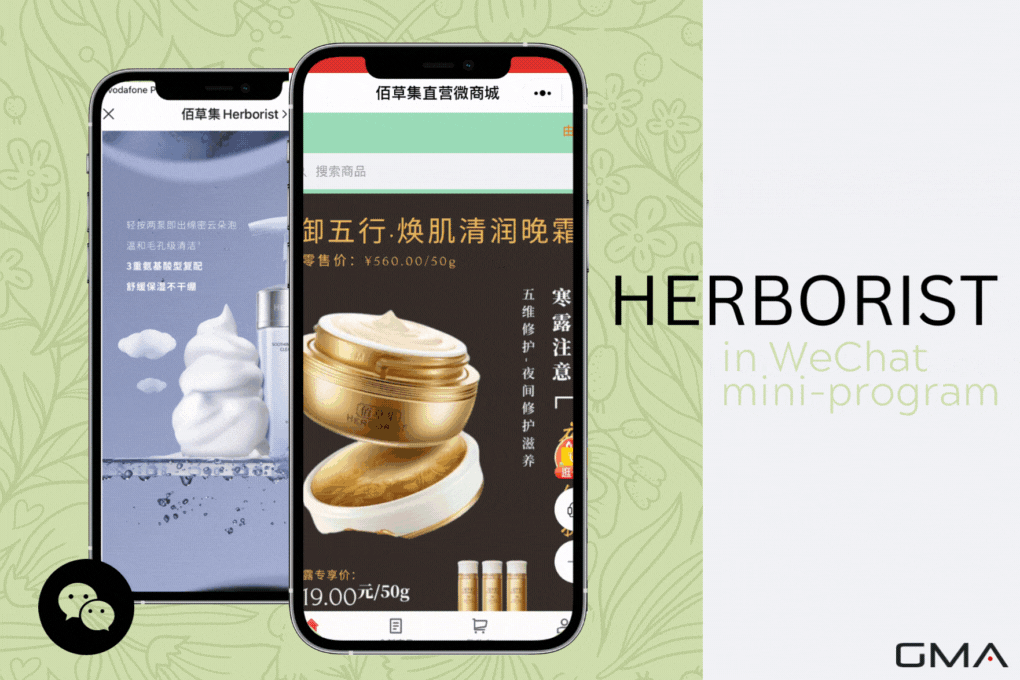
If you enter the Chinese market, WeChat is a must-have. There are 1.2 billion monthly active users on WeChat. Every Chinese has a WeChat account to talk with his friends, follow brands, purchase train tickets, or pay.
For cosmetics brands, it is an essential tool to build your existence in the Chinese market and increase engagement with your followers. You can share newsletters, brochures, and moments, and participate in private groups. Especially for healthy brands and clean beauty, private groups are a key strategy to create your “expert image” and share beauty advice.
Xiaohongshu
Xiaohongshu, also known as Little Red Book or RED, is the best social media platform for luxury, fashion, and cosmetics. Xiaohongshu is a great social media to go with if you want a great return on investment (ROI) with a small initial investment. On the app, 80% are women and they are looking for new fashion or cosmetics items to purchase.
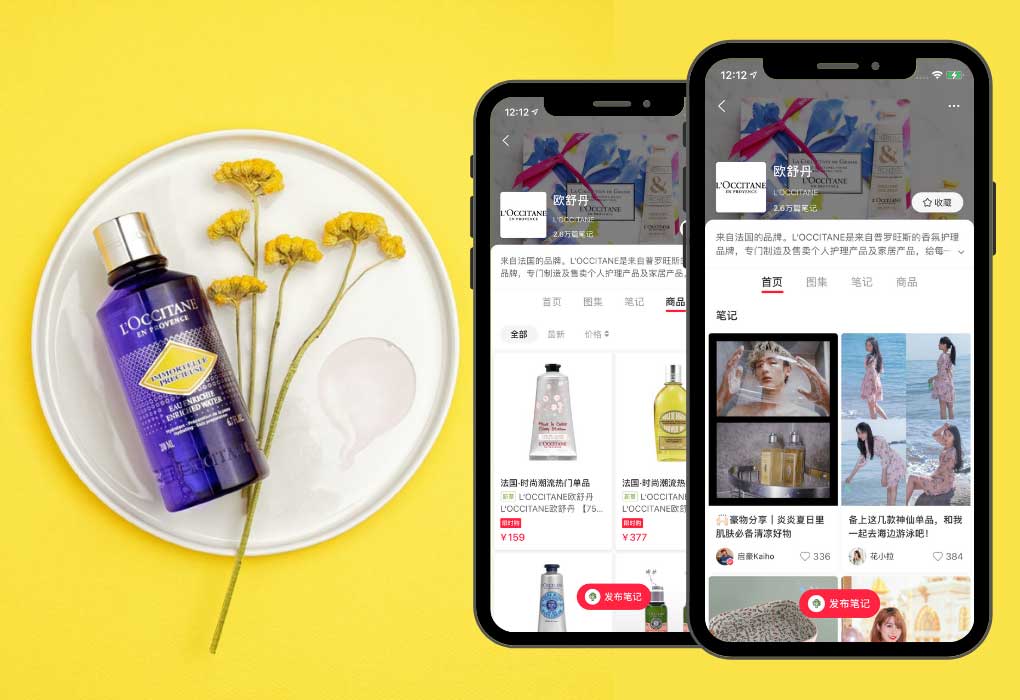
The platform is mostly known for its user-generated content, where Chinese women share their opinions on products they use, recommendations, lifestyle tips, and more. If you need to invest in social media, we advise using at least those two platforms. WeChat is great for keeping your followers engaged, but Xiaohongshu is better for lead generation, as it allows you to reach a bigger audience.
Partner with KOLs and KOCs to promote the brand
To make its products known, Lu Ming Tang chose the most effective digital strategy of the moment: Key Opinion Leaders. These influencers are small-scale celebrities who have a large audience of followers. So, the KOL write articles on Wechat where they describe their experience with a new cosmetic product or post tutorials on Youku and Weibo.
On each post, they are massively followed and their popularity gives a lot of credit to the brand. The followers feel more easily encouraged to test a product that they have first staged. They also engage customers with short videos or live streams, showing the product live.
The visibility and recognition of the brand are also coming from KOCs endorsement. On Xiaohonghsu, the Chinese Instagram, several common users or Key Opinion Consumers are promoting the products of the brands. They are followed by a smaller audience who engage more easily and purchase faster.
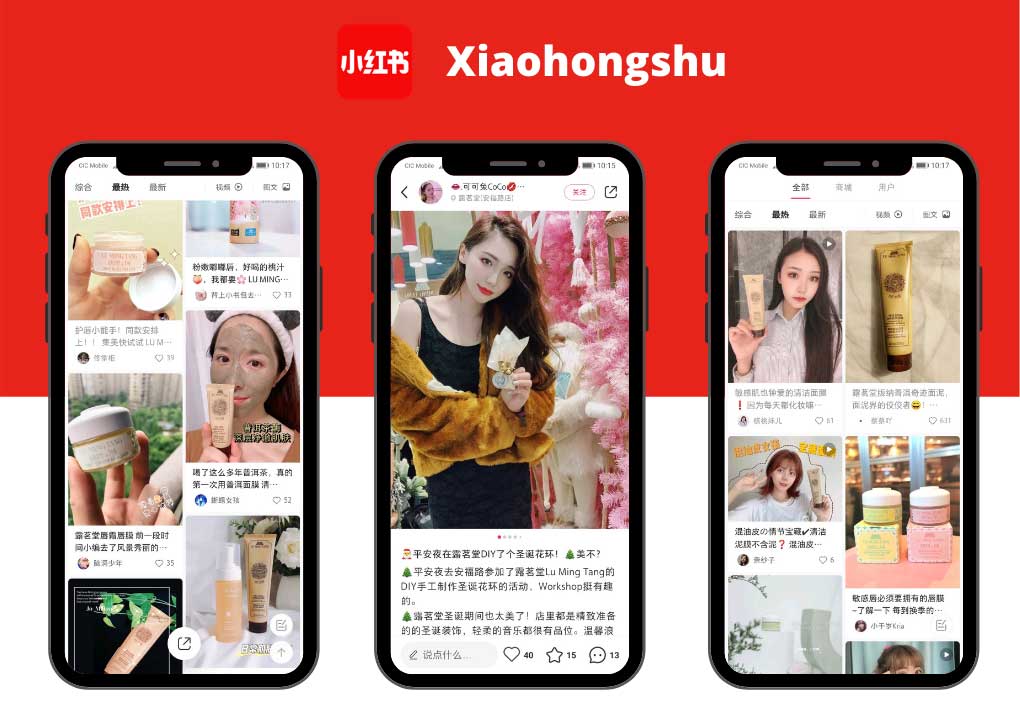
Understand the expectations of Chinese consumers
The first concern of Chinese women is the aging of their skin. They are obsessed with the first wrinkles and buy early anti-aging solutions. Compared to the West, old ladies are not the main consumer segment of anti-aging creams but rather women between 25 and 35 years old.
In addition, many still consider white skin as an aesthetic ideal and do not hesitate to use the whitening of the skin to achieve it. Faced with this demand, luxury cosmetics systematically add whitening agents in their creams and masks sold on the Chinese market, without necessarily changing the ingredients label.
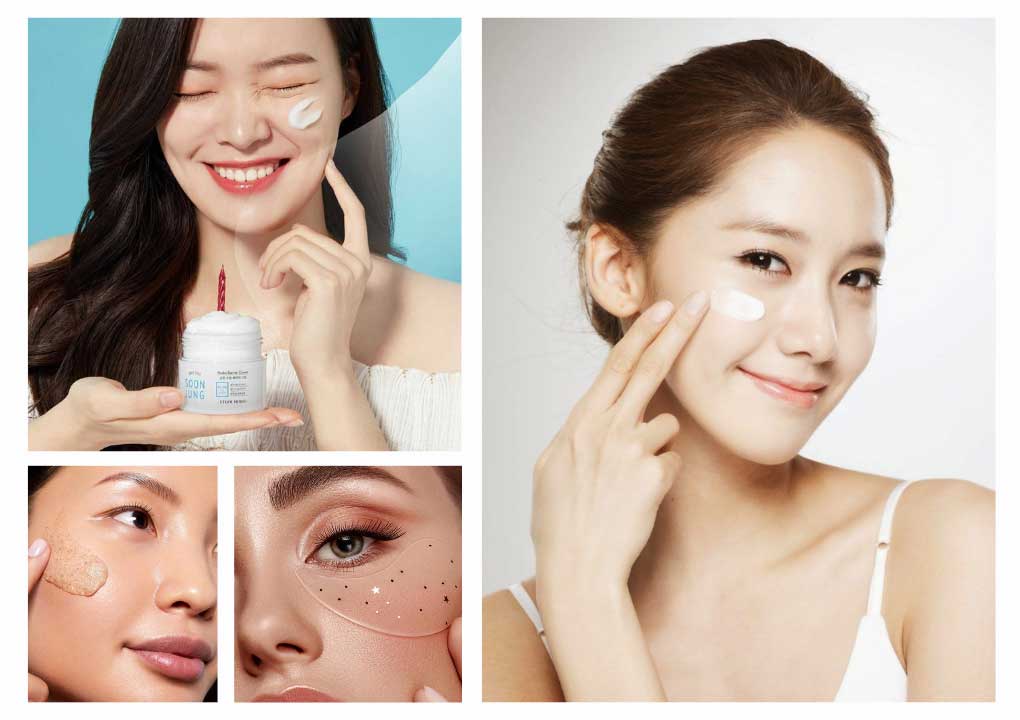
Lu Ming Tang products bring again a different message: cosmetics are not intended to lighten skin tone with whitening solutions, but to restore radiance to the complexion for a healthy skin result.
The workshops and tutorials of DYI or “Do It Yourself” for beauty care are the true cosmetic trend of the moment in major cities of China. Lu Ming Tang understands this and offers fun workshops to learn how to make your own natural cosmetics.
Also, they propose educational workshops where you learn the right actions to adopt against pollution and nutritional advice. Since a healthy lifestyle reinforces the action of cosmetics, the brand advocates the link between healthy food and beautiful skin. And Chinese consumers recognize it.
Work on your branding and e-reputation
Apart from social media, you also need to invest some time in establishing your branding in China. We advise having a Chinese website hosted in Mainland China. Although websites in China don’t have the function of converting as websites in the West, they help build trust and visibility for your brand.
What is more, a Chinese website is essential in order to appear in Baidu search results. Baidu is the most popular search engine in China and if you want to attract consumers to your brand, you need to take care of Baidu SEO. Baidu favors websites in Mandarin hosted in China.
Apart from having a Chinese website, you can work on your branding and e-reputation by participating in some forum discussions. You can introduce your brand to communities there, see the needs when it comes to anti-pollution cosmetics and anti-pollution ingredients, and so on. Posting on forums like Zhihu, Baidu Tieba or Baidu Zhidao also helps you rank higher in search results.
Select your best local partner
When you are not based in China, you can feel the distance and the separation. Due to the Great Firewall, China is a very complex ecosystem. All the social media are different, the types of influencers are various, and the trends are evolving fast.
You need to find a reliable partner based in China to help you evolve and navigate into the most profitable market in the world. It is essential to understand each social media and know the best way to approach influencers.
Need help with your anti-pollution cosmetics? Contact us!
We are the Gentlemen Marketing Agency, a marketing agency specializing in digital solutions. We help big companies to perform in China and small brands grow their business in China. Since 2012, we have worked on +1,000 projects with brands in +50 countries. If you need advice on your next project in China, you can contact us!
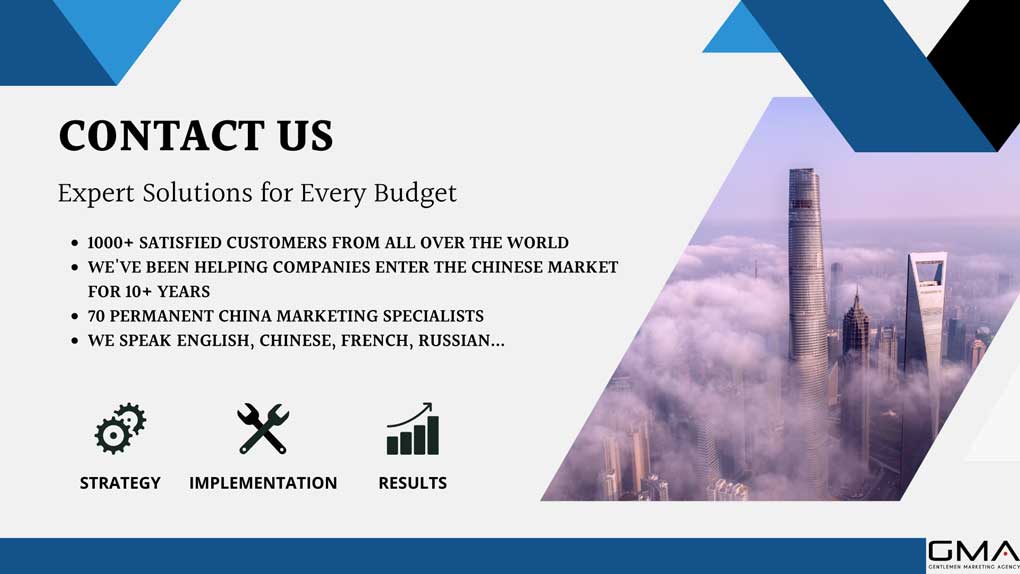
We offer many different services, depending on your budget, such as:
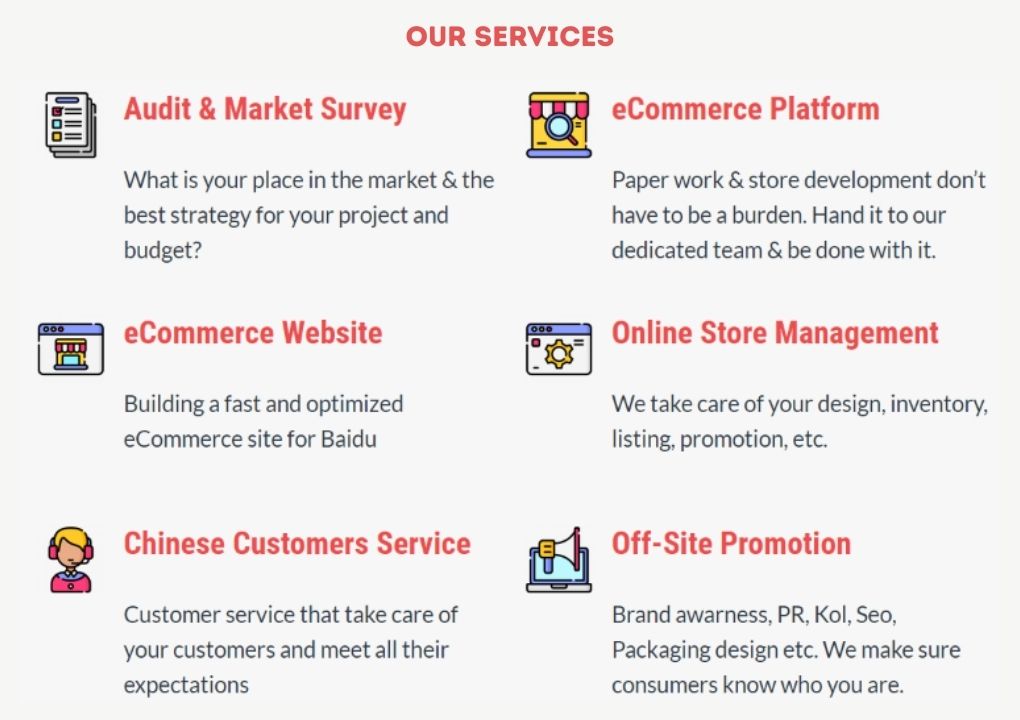
We have helped many brands over the years, so you can be sure we have the know-how and experience you need. Our team of Chinese and foreign professionals can help you achieve and exceed your goals in China.
Here are some of your cosmetics case studies:
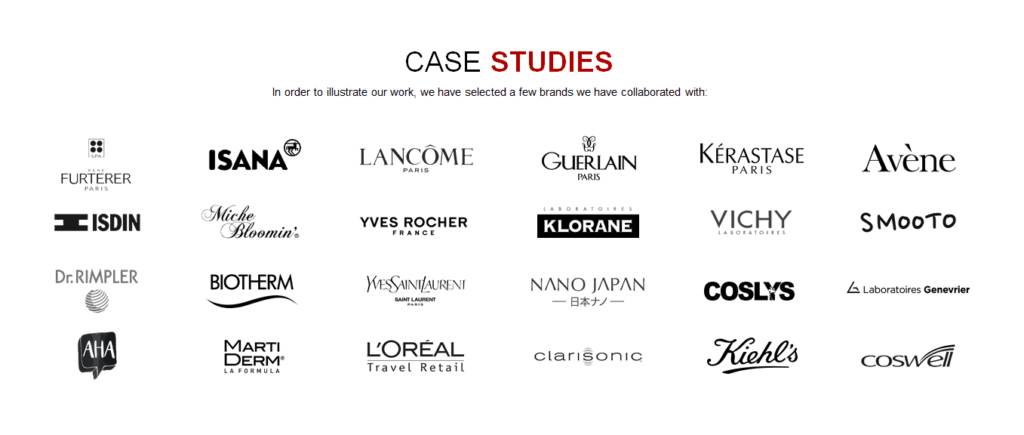
Don’t hesitate to contact us or leave us a comment to schedule a free discovery consultation with one of our experts!

